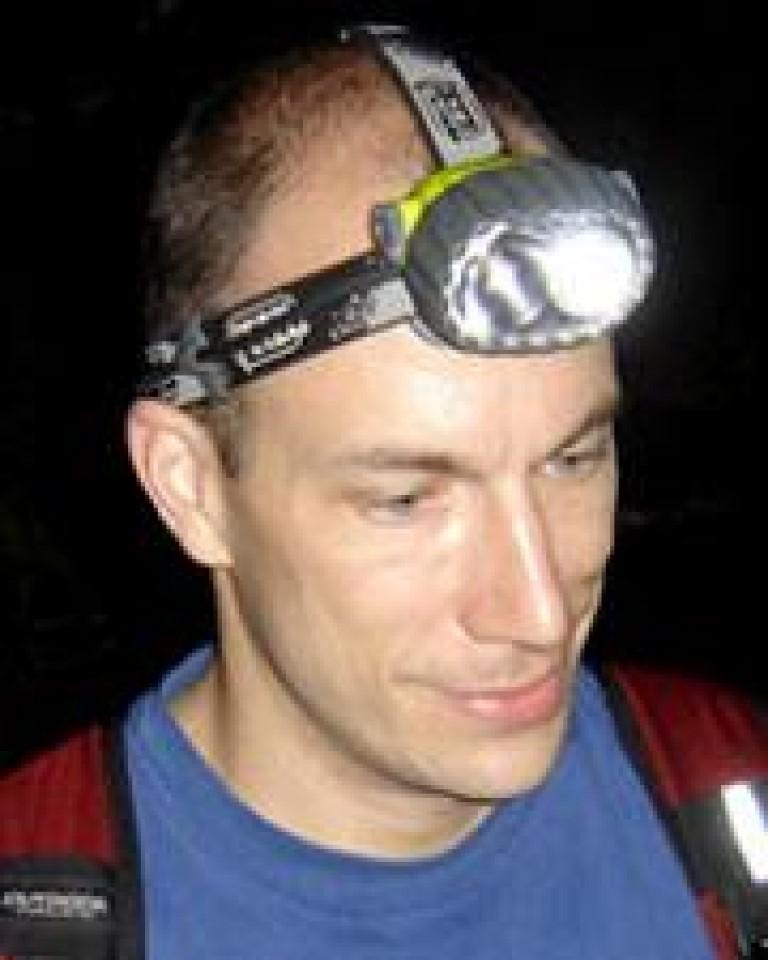David McLeod

MENTOR SPOTLIGHT | WINTER 2013
Department: Undergraduate Biology
Years at KU: 5+ years
Describe your research in a few sentences that we can all understand: My research focuses on the systematics, morphology, and natural history of living amphibians. I am particularly interested in species complexes and larval amphibian biology.
Q: How did you first get interested in doing research?
A: I was formally “drafted” into a research project as an undergraduate at Emporia State University, where I was studying secondary education. I was already working in field research on threatened Kansas fishes when my advisor suggested (that’s not a strong enough word for it...) that I take on a research project of my own. Once I had, he also guided me through the dissemination part of it and had me presenting my work at regional meetings and in publications.
Q: Is there someone who has been a great mentor to you? What about that person made him/her an effective mentor?
A: I have had several great mentors. Dr. David Edds (ESU) was the one who encouraged me to “do” science, not just study it or teach about it. Dr. Royce Ballinger (UNL) graciously facilitated my master’s research and had the heart to be constructively critical about my approach to science. His words were very influential as I determined that I would go on in pursuit of yet another degree in science. Dr. Linda Trueb (KU) was my advisor during my PhD. I came to KU to work with Linda specifically. She was willing to take me on as a student who neither worked in her specific field (morphology) nor in her geographic area of expertise (S. America). I came in as an “ecologist” working in SE Asia, and ultimately grew into a systematist and morphologist. She taught me an incredible amount about the frogs I was interested in, was patient with me as I explored new areas, and shaped my ability to communicate about the work I was undertaking (both in illustration and writing). I owe much to her.
Q: What advice do you have for undergraduates interested in doing research in your field?
A: Look for opportunities to explore BOTH lab and field work. The field is the most exciting place to be, but the lab is where you really get to sort out what you’ve seen in the field. Travel whenever you can. Learn the value of natural history collections and learn everything you can about how to make and sustain them.
Q: What is your favorite part about mentoring undergraduates?
A: Enthusiastic interest. I am fortunate to get to work with many undergraduates who are not heading into research science. Most of my students are pre-health care oriented. I keep hoping that some of them will skip track and become herpetologists! I love getting to watch them discover that they have the ability to DO science, not just study it in class.
Q: What do you find to be the most challenging part of mentoring undergraduates? Do you have any strategies that have helped you address this challenge?
A: Time, or rather the lack of it. Time to do work, to write, to discuss, to follow through on ideas. There just isn’t enough time to do everything we want to do.
Q: How do you spend your time when you aren’t teaching or researching?
A: Is there time outside of that? My wife and I are busy raising a family of three beautiful girls (11, 6, 2 yrs), so between family, teaching and research, nearly every minute is accounted for. If there is still time, I ride my bike on whatever road, gravel, or off-road course I can get access to.